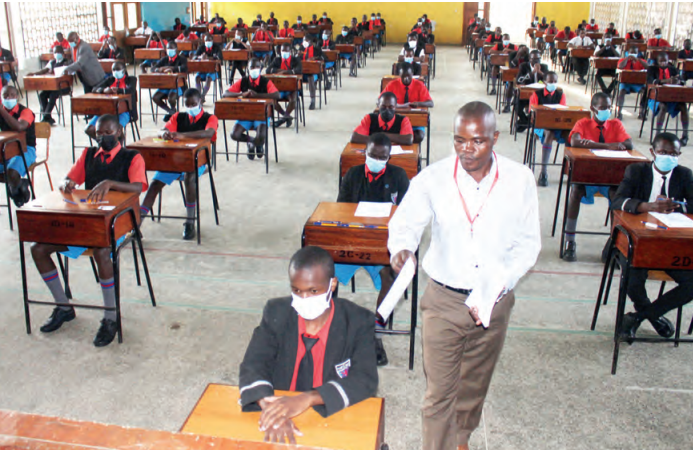Experts who advise MPs on matters of budget, finance and economics have called for the scrapping of the national examinations waiver.
The Parliamentary Budget Office says the waiver has yet to help the Kenya National Examinations Council (Knec) meet its budget shortfalls.
The government currently provides about Sh5 billion to cover the costs for all learners sitting national examinations.
President Uhuru Kenyatta introduced the system in July 2020 and applied the same to learners in private schools.
But PBO says owing to increasing enrolment levels, the government has been struggling to meet the entire cost on time.
This has resulted in huge deficits at the national exams agency, with the experts vouching for a cost-sharing arrangement with parents.
“The government should develop a cost-sharing approach for households to absorb the cost,” the experts said.
“In doing so, the government will be able to redirect the Sh5 billion allocated annually to fund other critical areas in the sector.”
PBO made the call amid findings that the education sector has a Sh91 billion funding shortfall, with capitation, loans and scholarships on a decline.
The experts attributed the decline to the “ever-increasing enrolment levels – fuelled by the 100 per cent transition policy, in a resource-constrained environment”.
PBO director Martin Masinde says in the report on the 2025-26 budget that the government’s focus should go beyond designing appropriate policies.
“The government will have to focus on the effective and efficient implementation of its various programmes to enhance economic resilience and improve service delivery,” he said.
This financial year, the allocation for capitation is Sh191 billion, which is Sh23 billion less than the Sh214 billion, which was provided in the 2023-24 period.
It is emerging that capitation for primary schools has not been funded to the tune of Sh661 million, Sh16 billion for secondary education and Sh15 billion for junior school.
TVETs have a capitation funding shortage of Sh3.6 billion and Sh5.3 billion in scholarships, Sh5.3 billion for university scholarships and Sh11.4 billion in the case of education loans.
Continuing students’ capitation has also not been funded to the tune of Sh33 billion.
“This resource gap is a clear indication that learners at various levels are not funded as expected based on the existing policies on funding,” the report reads.
PBO says the situation may affect the quality of education being delivered in the country’s learning institutions in the long run.
It is for the shortfalls that experts want the available resources, including bursaries, consolidated and redirected to the most impactful areas.
National and county governments allocate Sh20 billion annually towards bursary programmes – which are usually outside the overall spending framework.
“The fragmented and silo approach to the management of the bursaries results in an opaque picture of resource needs for learners creating room for inefficiencies, especially on multiple allocations,” PBO said.
The experts further hold that the amounts for bursaries were sufficient to address funding gaps for TVETs and secondary schools.
The team further wants the number of tertiary students getting bursaries capped, based on criteria that reflect equity













